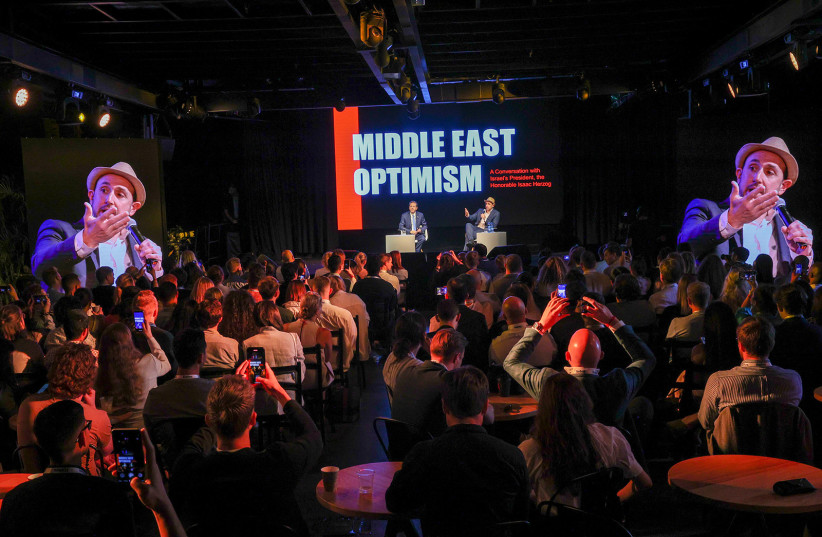Forbes’ fifth Israel-based Under 30 Summit is currently underway, with entrepreneurs, founders and influential thinkers gathering from across the country (and mostly Tel Aviv) in order to meet, connect and feel cool because they’re on the Forbes 30 under 30 list.
The man responsible for that list, which selects 30 people each year to represent change and progress throughout the business industry, is Randall Lane, the chief content officer and editor at Forbes magazine. Lane took the time to explain Forbes’ interest in Israel and the role it plays in the under 30 community, as we sat under the shade of an oversized table umbrella.
We're here [in Israel] because entrepreneurship is at the center of the global community.
Randall Lane, chief content officer and editor at Forbes Magazine
“We’re here because entrepreneurship is at the center of the global community,” said Lane. “We’re Forbes. We’re biased, not toward generic business leaders, but to founders, entrepreneurs, change-makers. And the DNA of this country, as it’s evolved over the last five, 10, 20 years – it’s just a very inspiring place to think about big ideas and think about big challenges.
“The success that Israel has had is incredibly inspiring,” Lane continued. “The challenges that Israel has are incredibly intoxicating, because the problems are so big, but if solved, would be so, so monumental. And so in many ways, it really challenges our participants to think big, both in terms of what’s been accomplished and what needs to get accomplished.”
Solving those problems is the core driver behind many institutions here in the Start-Up Nation, such as the Entrepreneurship Center at Ben-Gurion University of the Negev, also known as Yazamut 360°. Attending Forbes’ summit was the center’s founder, Dana Gavish, who has overseen the training of a new generation of leaders and entrepreneurs, and is inspired to see the trajectory of its alumni, two of whom have been featured on the “30 Under 30” list.

“It’s the best feeling in the world,” she said. “I know that we’re doing something so good around entrepreneurship in this university, it just feels like we’re doing something important. We’re helping the students and researchers do something important, and giving them the tools to do that along the way.”
The summit itself
On Monday, the summit was graced by musical guest Fo Sho, a Ukrainian hip hop group that competed in the Eurovision Song Contest two years ago. Two of the three sisters who make up the group have recently become 30 Under 30 listers (sadly, the third sister decided to be born five years too early to make the “under 30” cut). The middle sister, Siona, related the thrill of receiving the recognition, though she felt it was undermined by the idea that the war in Ukraine could have spurred the interest in her and her sisters.
“I’m very happy that it’s boosting our career. [This recognition is] something I’ve always wanted, and it feels right, but I never would have wanted to get it [because of a] war,” she lamented.
Betty, the eldest sister, weighed in on the ongoing war in her home country.
“People are saying that it will take maybe 50 years for Ukraine to recover after the war. We want these people to be mistaken,” she said, before addressing the ongoing friction in Israel.
“We were always watching the conflict in Israel and praying about it. We’re just praying that we will have good leaders with bright ideas and a love for humanity. We pray that the superpower that created the world will somehow solve it,” she said. “At their core, Jews and Arabs are brothers, and we’re all humans.
“We’re against hate, we’re against evil. It’s contagious, we want it to stop, and we will do our possible best to stop it. And maybe each of us will do something to make the world a better place,” she said.
Looking around at the attendees of the event – those who got their names on a magazine’s fancy list and those who didn’t – the passion I saw in their faces to make change in the world makes me think we might have a shot.
